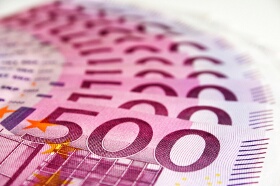The euro demonstrated a third weekly decline in a row against the US dollar this week. Yet the currency’s performance was not as bad as one might have expected considering fundamentals. The shared 18-nation currency managed to gain on the Great Britain pound and the Japanese yen over the week.
The major negative event for the euro was the policy announcement from the European Central Bank. While the ECB did not change its monetary policy, comments of bank’s President Mario Draghi suggested that European policy makers are ready to implement new stimulating measures if necessary. Analysts expect that the ECB will ease policy further in case Germany will slip into technical recession. The euro dropped against the dollar as result, unable to erase weekly loss even after non-farm payrolls disappointed dollar bulls.
Yet some currencies were even weaker than the euro. The sterling suffered from negative economic data and expectations for no interest rate hikes in the near future. The yen demonstrated a massive drop after the Bank of Japan decided to act and expanded its stimulus program.
EUR/USD dropped from 1.2507 to 1.2453 over the week, reaching the low of 1.2357 — the weakest rate since August 2012. EUR/JPY jumped from 140.95 to 142.72, touching the high of 144.21. EUR/GBP advanced from 0.7831 to 0.7845, while its weekly low was at 0.7798.
If you have any questions, comments or opinions regarding the Euro,
feel free to post them using the commentary form below.
